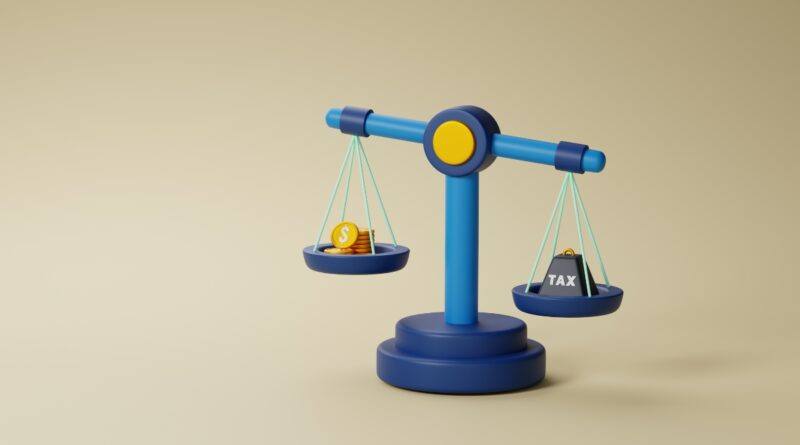Important Tax And Financial Updates: Know It All Here
Important financial updates for taxpayers, UPI users, and investors for January 2025; examine specifics on money rules.
Different changes are expected in January 2025 that would affect taxpayers, credit card users, and investors. These cover the updated rules on fixed deposits by the RBI to the need of providing investment documentation to your company for Income Tax Return (ITR) submission.
Most of the income tax changes proposed in Budget 2024 would start to effect during the continuous fiscal year 2024-25.
Financial updates 2025: Many investors and taxpayers would be impacted by several financial adjustments set for the first month of the New Year. On the one hand, CBDT has extended the IT reporting deadline to January 15, 2025; on the other hand, the Reserve Bank of India (RBI) has adopted revised rules for fixed deposits (FDs) with Non-Banking Financial Companies (NBFCs) and Housing Finance Companies (HFCs). Moreover, banks have revealed minimal spending criteria for credit card users trying to access airport lounges.
A quick review of the main changes:
CBDT spans ITR filing deadlines.
The Central Board of Direct Taxes (CBDT) has extended the deadline for resident people to file belated and corrected Income Tax Returns (ITRs) for assessment year (AY) 2024-25. Comparatively to the prior deadline of December 31, 2024, the new one is January 15, 2025.
RBI’s revised FD regulations
Effective January 1, the Reserve Bank of India (RBI) has lately published revised rules for fixed deposits (FDs) with Non-Banking Financial Companies (NBFCs) and Housing Finance Companies (HFCs). The major changes centre on rules regarding early withdrawals.
Small deposits valued at up to Rs 10,000 can be withdrawn entirely within three months of deposit making without interest costs.
On bigger deposits, depositors are allowed to make partial withdrawals of up to 50 percent of the principal amount or Rs 5 lakh (whichever is smaller) within a three-month period also free from interest.
Furthermore, regardless of the deposit term, customers have the option to prematurely withdraw the whole principal amount without paying any interest in case of a major sickness.
Apart from that, NBFCs have to tell depositors about maturity information at least two weeks before the maturity date, therefore guaranteeing more honest and timely communication.
UPI 123Pay transaction range
Per the NPCI circular dated October 25, 2024, the National Payments Corporation of India (NPCI) has decided to increase the limit for UPI 123Pay from Rs 5,000 to Rs 10,000. This choice corresponds with the press release on October 9, 2024, “Statement on Development and Regulatory Policies,” in which the Reserve Bank of India (RBI) said that the per-transaction limit for UPI 123Pay would be raised from Rs 5,000 to Rs 10,000. This change could help Indian consumers with feature phones who find it difficult to access the internet.
Revised tax regulations for FY26
Most of the income tax adjustments described in Budget 2024 will be implemented during the continuous fiscal year 2024–25. These changes will also affect the tax deductions and exemptions that can be claimed upon the July 2025 income tax return (ITR) submission.
Finance Minister Nirmala Sitharaman changed the relevant tax levels under the New Tax Regime:
Up to three lakh 0%
Five percent from Rs 3 lakh to Rs 7 lakh
Rs 7 lakh to Rs 10 lakh – 10%
Rs 10 to Rs 12 lakh – 15%
Rs 12 to Rs 15 lakh—20%
Over Rs 15 lakh – thirty percent
Lounge admission rules for RuPay card holders
For RuPay credit card users, starting January 1, a new lounge access policy will be followed. Based on cardholders’ spending patterns, the policy grants gratis lounge access contingent on their previous quarter’s expenditure.
Spending between Rs 10,000 and Rs 50,000 qualifies for two free visits per quarter (Tier 1), according to the spend-based tiers for lounge admission. Those who spend more than Rs 50,000 to Rs 1 lakh will get four complimentary visits (Tier 2). Higher spending categories provide even more lounge trips: spending between Rs 1 lakh and Rs 5 lakh (Tier 3) receives eight visits; spending above Rs 5 lakh (Tier 4) offers limitless gratis visits every quarter. Only some RuPay credit card variants—Select, Platinum, and higher variants—are covered by this lounge admission policy.
Change in the Credit record updating frequency
As stated in the August 2024 monetary policy, banks and other financial institutions would boost credit record update frequency starting on January 1, 2025. Credit data will henceforth be updated every two weeks—specifically on the 15th and the last day of the month—or at shorter intervals as decided upon by credit institutions and credit information firms instead of the monthly updates already in use.
Changes to BOBCARD
Beginning January 1, BOBCARD will be changing the credit card terms and features. Removed is the cap of 500 reward points every statement cycle for UPI transactions. The bank has also changed their credit card tariff for charges.
Apart from that, cardholders would pay a 1% processing fee for fuel transactions above Rs 10,000, utility transactions over Rs 50,000 (limited at Rs 3,000 each transaction), and wallet loading. On fuel transactions, HPCL ENERGIE BOBCARD holders will not be liable to the processing fee, though.
Moreover, if BOBCARD holders satisfy the minimum spending criterion in the previous quarter, they have free access to domestic airport lounges. The minimum spending limit differs based on the card type; for the Eterna credit card, it is Rs 40,000; for the Varunah Premium and Premier credit cards from the previous quarter, it is Rs 20,000.
Submission of FY25 investment declaration
Usually, companies ask workers to show proof of tax-saving savings achieved in the preceding fiscal year by January. Starting in April, it is advisable to include tax planning in your general financial plan instead of waiting until right before declaring. Ignoring the deadline your company established could cause more taxes to be deducted from your pay in January, February, and March.
Although you are entitled to a refund for too-high taxes deducted from your July returns, timely declarations assist in avoiding a cash shortfall in the latter quarter of the financial year.
Make sure deductions include Employees’ Provident Fund (EPF), home loan repayments, or children’s school tuition do not exceed the Rs 1.5 lakh limit under section 80C in the prior tax regime. Take care not to hurry while making investments.
Under the Old Tax Regime, you must present investment documentation proving tax deduction and exemption.




